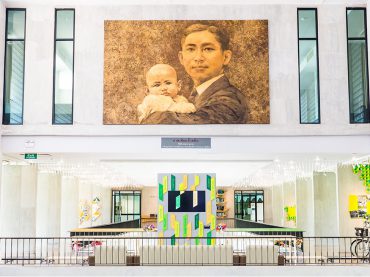Zone 2: ‘Chao Fa’ of the Land
กันยายน 21, 2020

Museum &
Exhibitions
Zone 2 : ‘Chao Fa’ of the Land
The exhibition focuses on HRH the Prince Father’s concise biography starting from his birth to his death.
His Royal Highness Prince Mahidol Aduldej was born on 1st January, 1891 (or 1892 according to the present calendar system) to His Majesty King Chulalongkorn, Rama V, and Her Majesty Queen Savang Vadhana. At the age of 12, he was elevated to His Royal Highness Prince Krom Khun Songkla Nagarindra and to His Royal Highness Prince Krom Luang Songkla Nagarindra in the reign of King Rama VII and His Royal Highness Prince Krom Luang Songkla Nagarindra, the Prince Father, in the reign of King Rama VIII. In the present reign, he is known as His Royal Highness Prince Mahitaladhibesra Adulyadejvikrom, the Prince Father.
H.R.H. Prince Mahidol of Songkla lived at the time when Thailand was entering the modern age. Educated in Europe and the United States, he was an intellectual with vision who was intent on applying his broad knowledge and rich experience to benefit the Thai society. His activities in the diverse fields of medicine, public health, nursing, pharmaceutical science, dentistry, engineering and higher education continue to have immense impact on Thai society to this very day.
The Prince married Somdet Phra Srinagarindra Boromarajajonani, the Princess Mother (née Miss Sangwan Talaphat) and had three children, namely:
1. Her Royal Highness Princess Galyani Vadhana Krom Luang Narathiwas Rajanagarindra
2. His Majesty King Ananda Mahidol, Rama VIII
3. His Majesty King Bhumibol Adulyadej, Rama IX
He passed away at Sapathum Palace on 24th September, 1929 at the age of 37 years 9 months and 23 days.
The Context of Thai Society and World Society
In 1892, most regions of the world were under the imminent threat of spreading imperialism from countries with superior scientific and technological progress. Siam was compelled to make significant adjustments in order to survive. Having introduced numerous reform measures to modernize the country, King Chulalongkorn, Rama V, paid visits to European countries to secure their cooperation and settle international political problems. He also sent members of the royal family as well as commoners to study overseas.
Ongoing international economic and political conflicts culminated in the First World War lasting between 1914 and 1918. Technological advancement combined with the rapidly expanding capitalism had an increasing impact on the Thai way of living. Thailand’s need for qualified professionals in new fields led to an educational expansion both locally and in terms of students being constantly sent for studies abroad. These Western-educated students not only gained academic knowledge but were also influenced by new ideologies, modern world views and tastes that represented Western culture.
QUICK LINKS
Archive & Museums Department
Archives Administration Division
Museums & Exhibitions Division
©2020 Archive and Museum Division, Mahidol University Library and Knowledge Center | E-mail: muarms@mahidol.ac.th